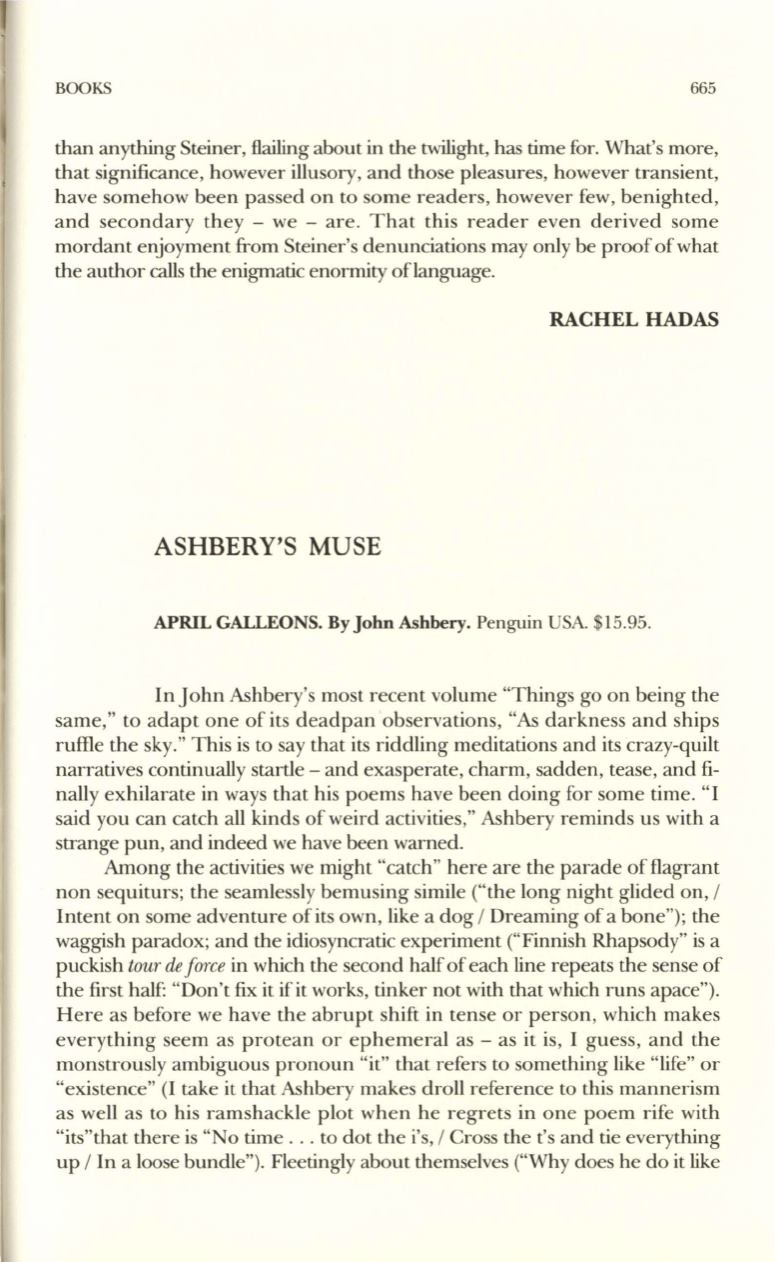
BOOKS
665
than anything Steiner, flailing about in the twilight, has time for. What's more,
that significance, however illusory, and those pleasures, however transient,
have somehow been passed on to some readers, however few, benighted,
and secondary they - we - are. That this reader even derived some
mordant enjoyment from Steiner's denunciations may only be proof ofwhat
the author calls the enigmatic enormity oflanguage.
RACHEL HADAS
ASHBERY'S MUSE
APRIL GALLEONS. By John Ashbery. Penguin USA. $15.95.
InJohn Ashbery's most recent volume "Things go on being the
same," to adapt one of its deadpan observations, "As darkness and ships
rume the sky." This is to say that its riddling meditations and its crazy-quilt
narratives continually startle - and exasperate, charm, sadden, tease, and fi–
nally exhilarate in ways that his poems have been doing for some time. "I
said you can catch all kinds of weird activities," Ashbery reminds us with a
strange pun, and indeed we have been warned.
Among the activities we might "catch" here are the parade of flagrant
non sequiturs; the seamlessly bemusing simile ("the long night glided on, /
Intent on some adventure of its own, like a dog / Dreaming of a bone"); the
waggish paradox; and the idiosyncratic experiment ("Finnish Rhapsody" is a
puckish
tour
de
force
in which the second half of each line repeats the sense of
the first half: "Don't fix it ifit works, tinker not with that which runs apace").
Here as before we have the abrupt shift in tense or person, which makes
everything seem as protean or ephemeral as - as it is, I guess, and the
monstrously ambiguous pronoun "it" that refers to something like "life" or
"existence"
(I
take it that Ashbery makes droll reference to this mannerism
as well as to his ramshackle plot when he regrets in one poem rife with
"its"that there is "No time ...
to
dot the i's, / Cross the t's and tie everything
up / In a loose bundle"). Fleetingly about themselves ("Why does he do it like


